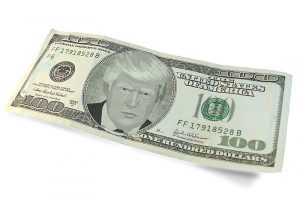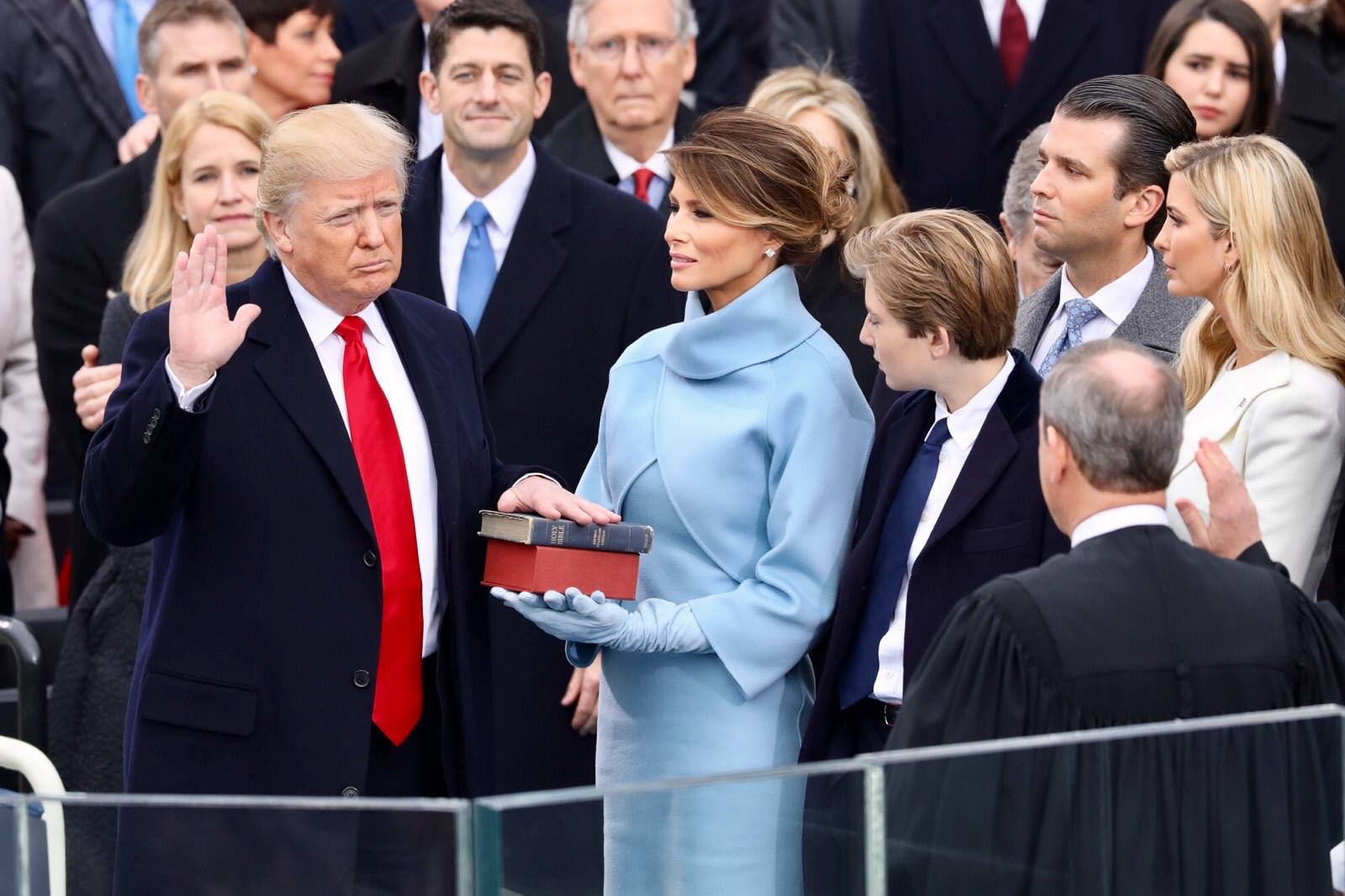Mashing up Christian nationalism, prosperity gospel, fear, grift, and a less than angelic figurehead, Trumpianity could be America’s newest folk religion.
As the last few weeks of President Trump’s term wind down, it’s a matter of some national interest to observe how his fans and followers decide to make peace, or not, with the realization that this episode of our country’s history will soon be over. Mitch McConnell may be jockeying for power in a future where The Donald’s tweeting thumbs have a much weaker hold over the American right wing. Some true patriots aim to put policies in place that will sabotage the Biden administration by undermining the country’s ability to recover. And while the fading president-reject mounts a campaign of (maybe not so) frivolous lawsuits and promises a comeback, a new folk religion seems to be bubbling up from America’s melting pot: Trumpianity.
Evangelicals were a key demographic that cozied up to Donald Trump, using their electoral clout to launch the famous adulterer to the highest office in the land. Despite the moral outrage they heaped upon Bill Clinton for his wandering cigar, it was different this time, because while Trump cheated with porn stars and playmates, at least he had the holy “R” after his name. Evangelicals were willing to tolerate a flawed and wayward vessel if God’s own hand steered him to create safe space for them in a country that had begun to persecute them more harshly every year, and by “persecute” I mean “come dangerously close to having to whip up the occasional wedding cake for a gay couple as the country tilts majority-minority over the next few decades.”
Trump didn’t kick the Evangelicals out of bed, though, and if anything, he manipulated his image into one they could easily fetishize if they didn’t pay too much attention to the book he laid his left hand upon at his sparsely-attended inauguration ceremony in 2017. A copy of that book turned up again on June 1st, 2020, when Trump had peaceful, justice-seeking protesters shot with pepper balls so he could have his picture taken with it outside of St. John’s Church in Washington, D.C. This event, perhaps more visibly than any other in his presidency, highlighted a growing schism in modern American Christianity. On one side, there’s a straight and narrow path for those who really do strive to lift up the least of these. On the other, the branch leading to Trumpianity.
A handful of articles in Christian media have come out lately to call out Trumpianity for what it is: a toxic cult of faux-Christian nationalism. This ideology splices Church and State together, and as Trumpianity, hitches it to the star of the 45th President. Under the guise of “religious freedom” (which sounds like a guarantee that all faiths can worship according to their conscience), it promotes a particular flavor of Christian hegemony in public spaces. To be American is to be Christian, and only Christians can be “real Americans.”
In addition to the notion of Christian Americanism (the idea that American exceptionalism is rooted in being God’s favorite country), Trumpianity can trace its spiritual DNA back to two other ingredients. One, prosperity gospel, focuses not on the eternal, but on riches and worldly gain as a sign of God’s favor, positive thinking, and righteousness. Another is the end-times struggle between good and evil, re-imagined with deeply American framing as the culmination of a culture war between the legitimate Christian State and the diabolical forces of secularism alongside a kind of faux-Communism that has more to do with the fear of brown people getting welfare than it does with any ownership of the means of production by the working class.

Just like any other purely American innovation, Trumpianity also contains a grain of hucksterism at its core. Trump’s visible support for the Evangelicals is, as always with him, transactional, and he and his base feed off of each other. Trump’s increasingly desperate efforts to retain power even as the sun sets on his Presidency mirrors the struggle of Evangelicals and Christian nationalists to tighten their grip on a country where social and demographic changes are slowly marginalizing their agenda. As support, they not only sign off on the legitimacy of his actions against democracy, they fill his pockets with their money, which he says he needs to pay his legal bills.
Instead, those donations, from people who are surely struggling in an economy mangled by the virus he refused to take seriously, are headed elsewhere. Some is paying off Trump’s campaign debts, and a quarter of it goes to the Republican party’s coffers. The rest funds a loosely regulated Political Action Committee (PAC) that could be used to underwrite campaign costs for other candidates, such as a potential Senate run for Ivanka Trump. Or, he could just pay himself and his family a salary for a while. The world is full of possibilities when you’re a grifter with a religious following.
Related: Scorched Earth Is Not MAGA (Until It Is)


Join the conversation!